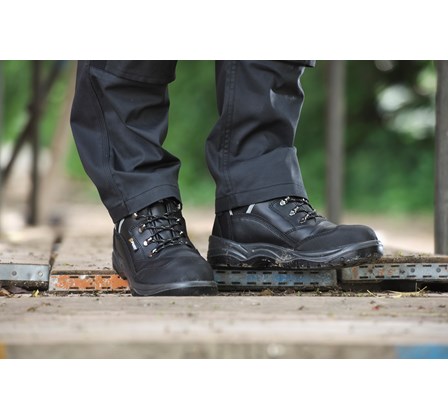Safety Boots & Shoes
Safety Shoes & Boots Protective Footwear
Safety Shoes & Boots Protective Footwear, are essential for workers in various industries, including construction, manufacturing, and warehousing. These shoes are designed to provide protection against various workplace hazards, including falling objects, slippery floors, sharp edges, and electrical hazards. In this blog, we will discuss the importance of wearing safety shoes at work and whose responsibility it is to purchase them.
Why wear safety shoes at work?
Wearing safety shoes is critical for several reasons. First, they protect the feet from injuries caused by falling objects, which are common in construction and manufacturing environments. In such workplaces, heavy objects such as tools, equipment, and construction materials are frequently moved around, increasing the risk of foot injuries.
Second, safety shoes provide protection against slips, trips, and falls. Workplace floors can be slippery, and employees need shoes that can provide a firm grip to prevent accidents.
Third, safety shoes protect workers from sharp objects such as nails, broken glass, and metal fragments, which can puncture the sole of regular shoes and cause injuries.
Finally, safety shoes offer protection against electrical hazards. Employees who work in environments with electrical equipment need shoes with non-conductive soles to prevent electric shock.
Who is responsible for purchasing safety shoes?
Employers are responsible for providing their employees with safety shoes. The Occupational Safety and Health Administration (OSHA) requires employers to ensure that their workers are protected from workplace hazards that can cause foot injuries. Employers must assess the workplace for foot hazards, select the appropriate protective footwear, and ensure that their workers wear them.
Employers should also provide training to their employees on how to use and maintain safety shoes. Training should cover the proper way to put on and take off safety shoes, how to inspect them for defects or damage, and how to clean and maintain them.
However, some employees may choose to purchase their safety shoes, especially if they prefer a specific brand or style. In such cases, employers should reimburse their employees for the cost of the shoes or provide a voucher to purchase them.
Conclusion
In conclusion, safety shoes are essential for protecting workers from foot injuries in various industries. Employers have a legal and ethical obligation to provide their employees with appropriate protective footwear and ensure that they wear them. Employees should also take responsibility for their safety by wearing the right shoes and following the training and instructions provided by their employers. By working together, employers and employees can create a safer and more productive workplace.

